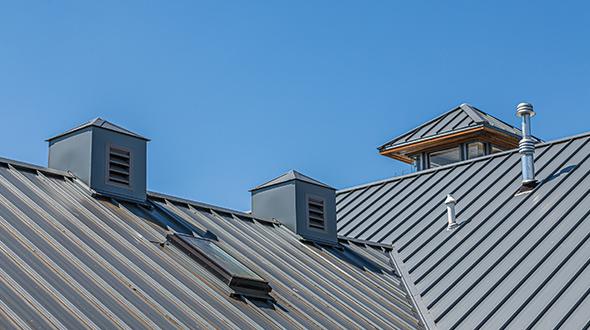Roofing Can Be Fun For Anyone
Roofing Can Be Fun For Anyone
Blog Article
Roof Repair Baltimore Md: Expert Roof Repair Solutions To Repair Leaks And Damage Effectively
Exploring Different Kinds Of Roofing Fixes
Ever looked at a strange dark spot on your roofing system and questioned, " What's actually going on up there?" Sometimes, recognizing the right type of roofing repair resembles detective work, unraveling clues left by the weather, time, and use. From subtle leakages to glaring damages, each repair type informs a story.

Typical Roof Repairs Revealed
- Leak Repair works: The tricky perpetrators-- tiny fractures or holes where water insinuates. Ignoring them can turn a moderate inconvenience into an expensive nightmare.
- Shingle Replacement: Missing or broken shingles aren't just an eyesore; they're invitations for water damage and pests.
- Flashing Repair work: Those metal strips around chimneys and vents? When damaged, they become gateways for leaks.
- Roofing System Vent Repair Works: Proper ventilation keeps your attic dry and your energy bills low. When vents fail, the roofing suffers quietly.
When Little Repairs Make a Huge Distinction
Picture a friend who neglected a minor roof leakage, believing it was no huge deal-- until a storm hit, turning a drip into a deluge inside their home. This anecdote highlights why timely repair work matter. The ideal fix might be as simple as sealing a crack or as included as changing several shingles. How do you choose? Here's a fast choice guide:
| Problem | Common Repair work | Signs to Watch For |
|---|---|---|
| Leaks | Sealant application or patching | Water stains on ceiling, mold growth |
| Damaged Shingles | Shingle replacement | Missing granules, curling edges |
| Flashing Problems | Metal flashing repair or replacement | Rust, separation from roofing system |
| Ventilation Concerns | Vent repair or installation | Extreme attic heat, moisture accumulation |
Doesn't the intricacy of roof repairs make you appreciate the craftsmanship behind a sturdy roofing system? In some cases, a patchwork job isn't enough-- other times, a quick fix breathes new life into your entire roofing system. What's clear is this: understanding the types of repair work empowers homeowners to act decisively, protecting their financial investment before little cracks become wide gorges.
Unveiling the Important Roofing Repair Work Materials
When a roofing whispers indications of wear, the materials you select for repairs can either extend its life or hasten its death. Ever seen how a handful of loose shingles can result in a cascade of leaks? That's the delicate dance between asphalt shingles and weather condition's unrelenting attack. These shingles, frequently the very first line of defense, are prized for their balance in between durability and ease of setup. However be careful-- simply patching with mismatched shingles can turn a fast repair into a future headache.
Metal flashing frequently gets away notice till water discolorations appear on ceilings. Yet, this simple strip guards vulnerable joints where different roofing areas fulfill. Roofing. A seasoned roofing professional understands to examine and change corroded flashing before mold claims victory. It's the difference in between a minor repair work and an expensive interior renovation
Products that Matter
| Product | Typical Use | Specialist Suggestion |
|---|---|---|
| Asphalt Shingles | Changing damaged or missing out on shingles | Match granule color and thickness for smooth mixing |
| Metal Flashing | Sealing roof joints and around chimneys | Usage corrosion-resistant metals and seal edges with roofing cement |
| Roof Cement | Sealing minor fractures and protecting flashing | Apply while warm for best adhesion and longevity |
| Roofing Felt | Underlayment for moisture barrier | Staple carefully to avoid puncturing the waterproof layer |
Have you ever questioned why some roofings seem to weather storms unharmed while others fail? The secret typically lies underneath the surface in the underlayment. Roof felt, a humble yet vital material, functions as a 2nd guard when shingles stop working. Cutting corners here suggests welcoming dampness to sneak in unnoticed. Here's a professional insight: always make sure the felt lies flat without any wrinkles; even a little bubble can trap moisture and cause early rot.
- Examine fasteners-- loose nails can loosen shingles and stir catastrophe.
- Utilize a multi-layer approach; integrating products increases strength.
- Keep in mind, roof cement is your pal but not a cure-all; it's finest for area repair work.
In the realm of roof repairs, accuracy with products transcends mere patchwork. It's a calculated symphony of texture, moisture control, and weather resistance. The next time you lift a shingle, ask yourself: does this repair honor the roof's initial defense or simply paper over the cracks?
Evaluating the Damage with a Keen Eye
Ever climbed onto your roofing system only to understand that what seemed like a small leakage might be hiding a maze of damaged shingles and warped decking beneath? The primary step in any roofing repair work is a careful evaluation. Stroll the boundary with care and try to find curled edges, dark areas, or granule loss on the shingles-- these subtle indications typically whisper louder than a gaping hole. Don't simply look; study the angles, due to the fact that water infiltration seldom announces itself politely.
Event Products: The Accuracy of Preparation
Before rising the ladder, guarantee you have all the essential tools at arm's reach. Envision the disappointment of balancing on a slanting surface area, recognizing you forgot your roofing cement or roof nails. Here's a list to keep helpful:
- Replacement shingles matching your existing roofing
- Hammer and galvanized roofing nails
- Roofing cement or sealant
- Utility knife for exact cuts
- Flat crowbar to eliminate damaged shingles
- Safety belt and non-slip shoes
Precision in Elimination and Replacement
Removing damaged shingles requires both strength and skill. Insert the crowbar carefully under the shingle, raising nails without tearing surrounding areas. One may be lured to tug forcefully, however progressive utilize prevents more damage. When positioning new shingles, stagger them properly-- remember, a misaligned shingle can become a gateway for rainwater, welcoming leakages that slyly erode your home's structure over time.
Sealing the Offer: Avoiding Future Leakages
Applying roofing cement isn't just slathering tar; it's about developing a durable barrier. Dab a modest quantity under the shingle tabs and press firmly, guaranteeing a snug fit. Excessive cement can split in the sun, too little invites moisture. Have you observed how some roofs endure storms unharmed? That's the result of expert sealing, a subtle art that changes simple repairs into long lasting security.
Security Tips Every Do It Yourself Roofer Should Swear By
- Never ever deal with a wet or windy day-- slips happen faster than you think.
- Use a strong ladder positioned on firm ground and examine its angle.
- Wear gloves to protect your hands from sharp edges and nails.
- Keep a very first aid package close by; minor cuts can escalate if overlooked.
- Work with a friend whenever possible-- roofs aren't a solo adventure.
Why Trusting Specialist Roofing Professionals Matters
Ever noticed how a simple leakage can silently transform into a disaster? Roof repair work require precision, and employing beginners typically causes patchwork services that collapse with the next storm. A professional contractor doesn't simply slap on shingles; they detect the source, whether it's used flashing, compromised underlayment, or hidden rot.
Envision climbing up onto the roof yourself, armed with a hammer and some nails, only to understand you have actually worsened the issue. The reality is, roofing damage isn't always noticeable from more info the ground or perhaps the attic. Specialists wield moisture meters and infrared electronic cameras-- tools that expose the unseen. Would you trust your home's shield to guesswork?
Secret Advantages of Specialist Roofer
- Precise Assessment: They recognize subtle signs like granule loss or sagging decking that a lot of miss out on.
- Code Compliance: Guaranteeing repairs fulfill local building regulations, preventing future insurance headaches.
- Material Competence: Picking the right materials to match your roof's distinct profile and climate obstacles.
- Safety First: Navigating high slopes and heights with proper harnesses and devices.
- Warranty Guarantee: Support repair work with warranties that safeguard your investment.

Expert Tips for Hiring the Right Roofer
- Verify licensing and insurance-- do not bet with unverified credentials.
- Ask for a detailed written quote detailing scope and materials.
- Ask about their procedure for dealing with hidden damage uncovered during repair work.
- Examine how they manage debris elimination-- roofing work should not leave a mess behind.
- Verify experience with your particular roofing system type, whether asphalt, metal, or tile.
In roof repair work, faster ways typically cost more in the long run. The professionals know when to repair, when to replace, and how to extend your roofing system's life-span. Isn't it better to secure your home's first line of defense with those who see beyond the surface?
Specialist Roofing System Fixes in Baltimore County
Baltimore County is a vibrant area known for its diverse communities and abundant history. With a population that enjoys a mix of suburban and urban living, the county uses destinations like the beautiful Loch Raven Tank and the dynamic Towson Town Center. Homeowners benefit from a strong regional economy and access to quality public parks and cultural occasions, making it a desirable location to live and work.
For reliable suggestions and a totally free consultation on roofing repairs, consider reaching out to CRG Roofing and Siding. They provide expert guidance tailored to your needs and assist guarantee your roofing stays in outstanding condition.
Report this page